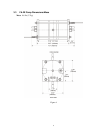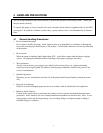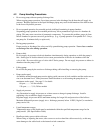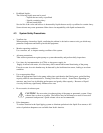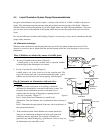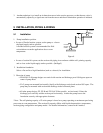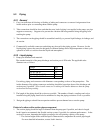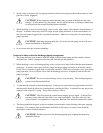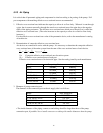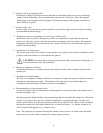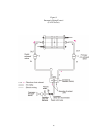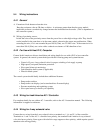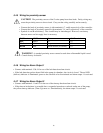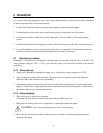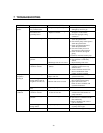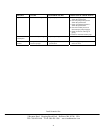17
5.4 Wiring instructions
5.4.1 General
A. Extension of leak detector electrode wire:
Keep the resistance value at 5K ohms or below. A resistance greater than the above may make it
impossible to detect a conductivity change between the leak detection electrodes. (This is dependent on
the controller system.)
B. Wiring of proximity sensor:
Isolate the wires of the proximity sensor from the power line or other high-voltage cable. They should
not be installed in the same duct or in the same conduit, otherwise the sensor may malfunction. When
extending the wire, if it is not extended beyond 100 ft (30m), use 22 AWG wire. If the extension is for
more than 100 ft (30m), use a wire with a conductive resistance of 100 ohms/km or less.
5.4.2 For Use with Host PLC, Computer
Contact Iwaki America to discuss installation and wiring details for use with a PLC or host controller
system. In general, the control system should provide the following pump and system features.
• Control of 5 port, 4 way solenoid valve for proper switching of air supply to pump
• High speed (overspeed) limitation protection
• Slow speed (time-up) monitoring
• Leak detection alarm system (if applicable)
• Filter/air bleed system
The control system should ideally include these additional features:
• Pump stroke totalizer
• Pump stroke rate display (can be translated into flowrate display)
• Pressure monitoring and regulating system
• Slow speed start-up or drain cycle capability
5.4.3 Wiring for Iwaki America AC-1 Controller
For complete details for use with an AC-1 controller, refer to the AC-1 instruction manual. The following
information is supplied as reference.
5.4.4 Wiring for 4-way solenoid valve
Connect the two wires from the 4-way solenoid valve to terminals no. 1 (+) and 2(-) of the controller.
Terminals no. 1 and 2 of the AC-1 controller have polarity, the standard Iwaki America 4-way solenoid
valve also has no polarity. Some types with a built-in surge suppressor have polarity, which requires special
attention to the wiring polarity.



